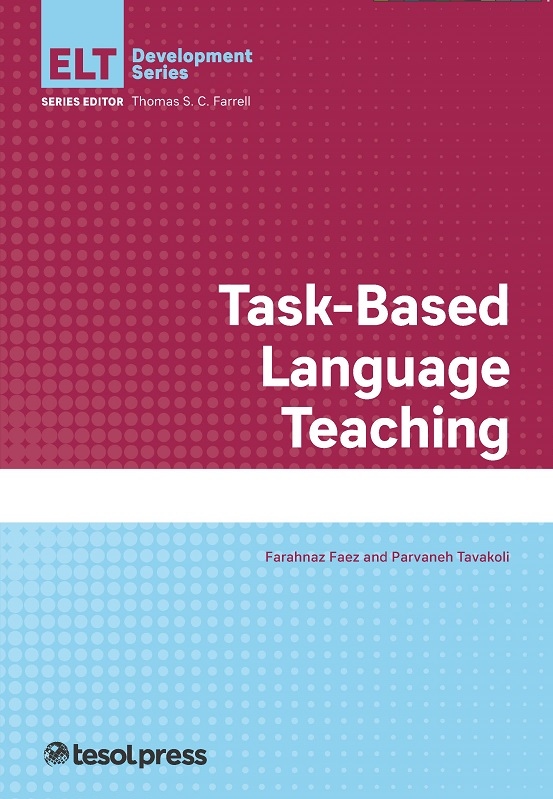|
| |
Book Review: Task-based Language TeachingBy Jeanine Caughlin Faez, F., and Tavakoli, P., (2019). Task-based Language Teaching.: TESOL International Association Tackling the broad subject of task-based language teaching (TBLT) in fifty pages is ambitious, yet Faez and Tavakoli achieve a successful distillation of the topic in their recently published Task-based Language Teaching, published by TESOL International. The history and guiding principles are deftly presented in the introduction as an illustrative backdrop for what follows, which is a road map for implementing TBLT in the classroom. The road map ranges from activities and lesson planning to curriculum planning. The authors provide guidance in assessing lesson design that ensures aims and objectives are achieved. Finally, practical implications are addressed so that what is presented in these pages is not merely an idealized version of TBLT, but a practical guide for facing the mundane challenges of implementation. The argument for using TBLT is based on the premise “learners need to be exposed to meaningful input, beginning in the early stages of learning” (Faez and Tavakoli, 2018, p. 13). This book skillfully explains what kind of tasks can provide meaningful input while leaving room for the reader to extrapolate what other tasks would be meaningful. Regarding lesson and curriculum design, this book strongly asserts that meaningfulness is informed by learners’ needs, and not just their linguistic needs but their practical needs to communicate in their own lives. As such, they stress using a learner assessment which gauges not merely language capacities but practical contexts for language learners. This text would be best used by an experienced TESOL or bilingual teacher for personal reflection and development or in the context of a workshop. Reflection tasks offer ample opportunity for readers to draw on their own experience in planning for their own class or for workshop participants to engage in productive discussions. TESOL teachers who know the communicative approach will find the text very readable, but inexperienced teachers or those to whom the communicative approach is unfamiliar would benefit from partnering with a colleague for discussion. There was very little lacking in this book, but some more examples of task-based lesson plans would have opened the readers’ eyes to the variety of forms that a task-based lesson can take. This book offered one example which showed a very structured approach with mostly focused tasks. Examples of less-structured lessons or different styles of tasks would have illustrated the variety of TBLT approaches. Task-based Language Teaching is one of the English Language Teacher Development (ELTD) series of books published by TESOL press. These books share similar features in that they are all about 50 pages long, use limited jargon, and include reflective activities throughout. Readability is a prime requisite and reader engagement is an obvious goal. Not only would I recommend this book, but I would suggest that reading any book in this series could be an efficient way to get up to speed in an area of TESOL without sacrificing quality. Jeanine Caughlin is an experienced EFL and ESL teacher, an ITBE conference presenter and a graduate student in the TESOL program at Northeastern Illinois University. | |
| Spring 2019 - Spring 2019 |